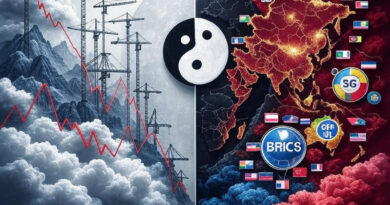The Al-Aqsa Mosque: Holding On to the Heart of Jerusalem
The Al-Aqsa Mosque: Holding On to the Heart of Jerusalem
It’s hard to scroll through the news lately without feeling a bit weighed down. Especially when it comes to what’s happening in Jerusalem, a city packed with history, faith, and struggle. And right at the center of it all? The Al-Aqsa Mosque—a place that’s more than stone and prayer rugs. It’s memory, identity, and for many, a lifeline.
Lately, things have gotten tense again. The Palestinian government has been speaking out strongly, warning about a growing threat from Israeli settler groups. These aren’t vague concerns. They’re rooted in what’s been happening on the ground—stormings of the mosque compound, online videos showing it set ablaze, and whispers that go beyond protest.
There’s a feeling in the air, heavy and hard to shake. Let’s try to unpack it together.
What’s Really Going On?
To start, the Al-Aqsa Mosque isn’t just any place of worship. For Muslims, it’s the third holiest site in the world. It’s been around for over a thousand years, and for Palestinians, it stands as a symbol of their presence in Jerusalem—a claim to history that runs deep.
But over the past few months, videos have circulated online showing Israeli extremist groups sharing clips of Al-Aqsa set on fire. One video, shared by the group “Temple Mount Activists,” even carried a disturbing message: “Soon, we will burn you.” That kind of language? It’s not protest. It’s incitement.
And it’s not staying online. According to Palestinian officials, Israeli settlers stormed the mosque compound 21 different times just in August, often under the protection of Israeli security forces. That means people showing up to pray or reflect are walking into a space that doesn’t feel safe anymore.
The Response from Palestine—and Beyond
Palestinian leaders haven’t minced their words. The Ministry of Endowments and Religious Affairs called this campaign a clear and growing threat. They’re asking not just for words of sympathy, but real action. International law, they argue, is being broken in broad daylight.
It’s not just Palestine saying this. Jordan’s Foreign Ministry joined in, condemning the settlers’ actions and warning that these moves are ripping away at the city’s fragile fabric. The Organization of Islamic Cooperation (OIC) didn’t hold back either, calling the stormings a “dangerous escalation.”
Even if you’re far from the region, it’s not hard to understand what’s at stake. It’s not just bricks and borders—it’s about dignity, safety, and the right to pray without fear.
Why It Matters—Even If You’ve Never Been to Jerusalem
Maybe you’re reading this from a café in Chicago, or a bedroom in Manila, or somewhere in between. And maybe you’re thinking, “This has nothing to do with me.” But here’s the thing—it does.
Because this isn’t just about religion or politics. It’s about people trying to hold on to something sacred in a world that’s constantly tugging it away. It’s about communities asking not to be erased. It’s about a mosque, yes—but it’s also about what happens when respect is replaced with force.
We’ve seen it before. In different countries. In different centuries. But it always starts the same: with the slow chipping away of something that seems small at first—until suddenly, it’s all gone.
Where Do We Go From Here?
That’s the question on everyone’s mind. What now?
The Palestinian Foreign Ministry is calling for global attention. Not just sympathy tweets. Not just hollow statements. They’re asking for countries and organizations to step up. To pressure, to protect, to prevent what feels like a slow-moving takeover.
And they’re not wrong to worry. In a place as sacred and charged as Jerusalem, every action sends ripples. Every storming. Every video. Every silence.
So what can be done?
It starts with speaking up. Educating ourselves. Not turning away. It means pressing leaders to live up to their values—not just when it’s easy, but when it’s complicated. Especially then.
Final Thoughts
Al-Aqsa Mosque has stood through centuries of earthquakes, wars, and empires. It’s not going anywhere. But the people who pray there, the children who run through its courtyards, the families who whisper their hopes into its winds—they need us to pay attention.
Because this isn’t just a local story. It’s a global one. About who gets to feel safe. Who gets to remember. And who gets to belong.
And maybe if more of us care—really care—then that sacred place can remain just that: sacred.



